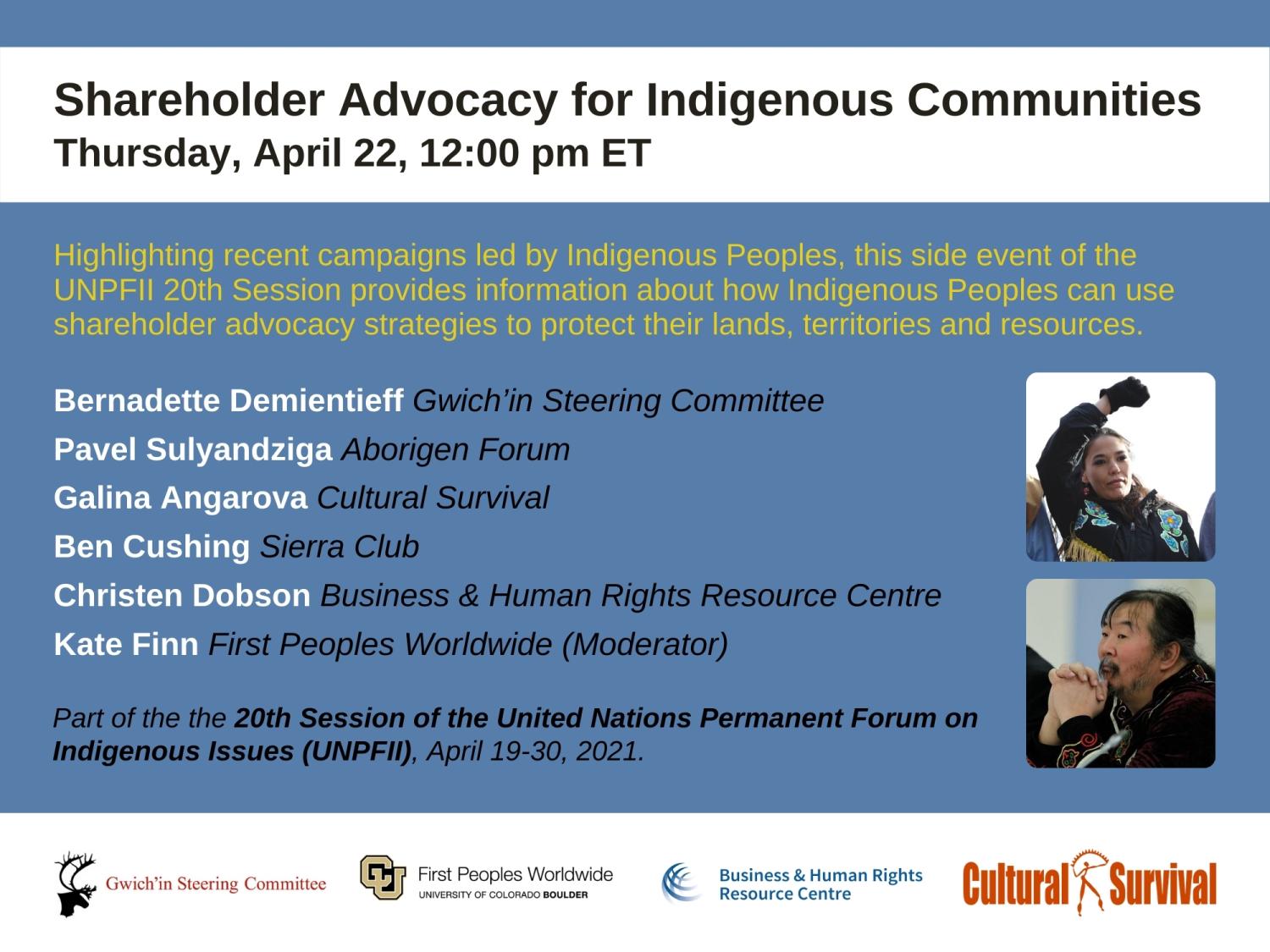Recording: Shareholder Advocacy for Indigenous Communities - UNPFII 2021 Side Event

Organized in partnership between the Gwich’in Steering Committee, Cultural Survival, Business & Human Rights Resource Centre and First Peoples Worldwide as a side event for the 20th Session of the United Nations Permanent Forum on Indigenous Issues (UNPFII), April 19-30, 2021.
Shareholder Advocacy for Indigenous Communities
Thursday, April 22, 2021, 12:00 pm ET
SEE VIDEO OR AUDIO RECORDINGS.
Around the globe, governments continue to violate the rights of Indigenous Peoples by permitting companies to improperly use Indigenous lands, territories and resources. In these instances, shareholder and investor advocacy can be a potent tool for Indigenous Peoples to oppose and influence projects that affect their lands and labor.
Highlighting recent campaigns and engagements by Indigenous leaders and human rights advocacy groups, this panel provides information about how Indigenous Peoples can harness shareholder and investment strategies to target the companies that are proposing harmful projects and creating the conditions for rights violations; details options when domestic legal remedies are unavailable to Indigenous Peoples or when the State refuses to recognize Indigenous Peoples or that their rights have been violated; and discusses other methods of protecting Indigenous rights and resources that are critical to preventing harmful development occurring without the Free, Prior and Informed Consent of Indigenous Peoples.
Panelists:
- Bernadette Demientieff, Executive Director, Gwich’in Steering Committee
- Pavel Sulyandziga, Member, Aborigen Forum; Board Chairperson, International Development Fund of Indigenous Peoples in Russia (BATANI)
- Galina Angarova, Executive Director, Cultural Survival
- Ben Cushing, Senior Campaign Representative, Sierra Club
- Christen Dobson, Senior Project Lead & Researcher, Business & Human Rights Resource Centre
- Kate Finn (Moderator), Executive Director, First Peoples Worldwide
See the UNPFII full agenda, as well as further side events from Cultural Survival.
Further Background
Shareholder advocacy strategies can take a number of forms. Companies can be directly pressured by engaging with their shareholders, and indirectly pressured by working with clients, financers, and potential investors to agree not to support the company if it goes forward with a project. Through letter writing, shareholder resolutions, investor and company meetings, and targeted media, Indigenous Peoples can alert shareholders and investors of the potential risks of a particular project. By connecting with investors, financers, and other companies in the supply chain, Indigenous Peoples can raise awareness and dry up interest in harmful projects.
As companies become more aware of the importance of accounting for Environmental, Social, and Governance concerns and the costs of reputational damage, these tools become a more potent force to changing company behavior. Companies must either understand the business risk of violating the rights of Indigenous Peoples or face an array of direct and indirect costs.

